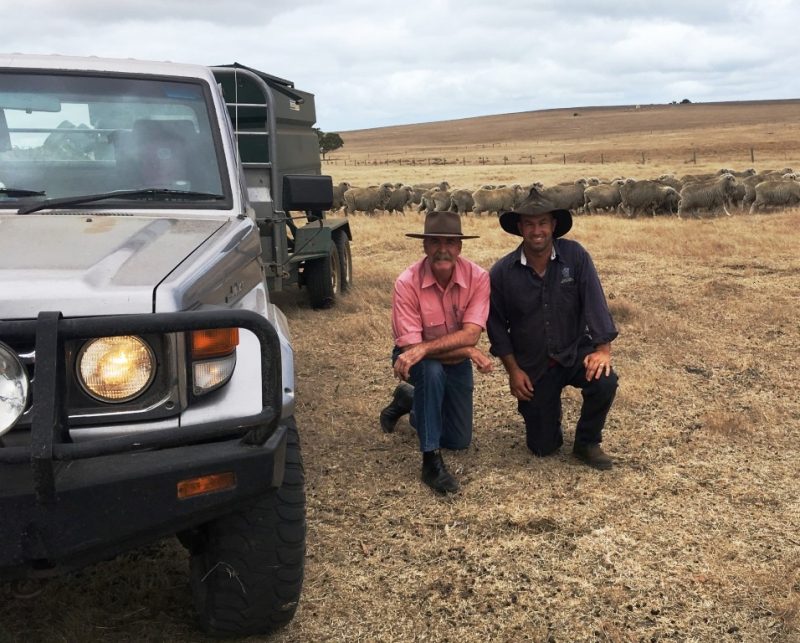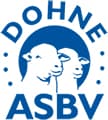The Dohne; An Asset to Merino Breeders in South Australia
Original article by Nicola Wood March 2019. Original photo courtesy of Tom Penna.
TOM PENNA – ELDERS STUD STOCK AGENT
VICTOR HARBOR, SOUTH AUSTRALIA
“I think the Dohne-Merino has added so much versatility to the Merino breed that a self-replacing Dohne-Merino flock is highly profitable.”
WITH 45 YEARS experience in the rural industry, stud stock agent Tom Penna sees the Dohne as having a substantial impact on the type and quality of dual-purpose sheep now being bred in South Australia.
Previously working in various country branches, a real estate franchise and as a journalist for the Stock Journal, 43 of those years have been as a stud stock agent, the last 13 years specifically with Elders in South Australia.
“We as stock agents deal with all breeds and types of livestock, both sheep and cattle. I’ve had a fair bit to do with Dohnes probably in the last 15 years since their introduction to South Australia.”
In particular, Mr Penna sees the Dohne-Merino to be an influential breed that shows high levels of versatility and profitability. “I personally consider the Dohne-Merino to be a strain of the Merino breed.
The wool is quality Merino: testing of fibre diameter, coefficient of variation, standard deviation and the comfort factor, is all very uniform and puts the wool into the top calibre Merino wool category,” Mr Penna said.
The introduction of the Dohne breed into South Australia saw traditional Merino breeders benefit from the dual-purpose traits of the breed in that it’s a plainer-bodied animal with a higher-yielding carcass and good Merino quality wool. “A lot of our traditional Merino has now gone down the track of breeding those plainer-bodied sheep which are easier to care for at the commercial farmers end.
“I think the Dohne-Merino has added so much versatility to the Merino breed that a self-replacing Dohne-Merino flock is highly profitable.”
Mr Penna has seen clients, the Carmichale family of Waitpinga South Australia, reap from these benefits offered by the Dohne over the past 10 years by introducing them into their pure Merino flock. Since then they have seen an increase in their lambing from 80 to 120%.
“This increase goes hand-in-hand with the plainer-bodied type that just simply lends itself to high-lambing percentages and the Carmichales are rapt in that they now produce better carcass lambs, with a lot of their lambs going into the top grid lamb prices,” said Mr Penna.
Along with this the Carmichales found the Dohne influence to improve the maternal traits of their ewes; Mr Penna stating, “They find them to be very good mothers and have a lot more twins – overall it’s a better ‘doing’ type of sheep in that they hold their condition. Their wool is still in the 20-21 micron bracket and they’ve more than picked up the profitability on the extra lambs, the better lambs and getting the lambs into the higher price grids.”
Mr Penna sees the versatility of the Dohne adapting well to unpredictable seasonal conditions, certainly possessing traits that sheep breeds are going to need and benefit from going forward.
“We have a lot of clients that run Dohnes in the pastoral areas now and all producers, particularly in our Broken Hill region have had to either completely de-stock or had huge reductions in their ewe numbers. Though, for those that have kept their sheep on, I see the Dohne ram as playing an important role to get in and get those ewes in lamb, lambs on the ground, weaned and rebuild a
flock, which is vital to the profitability to the farm. The Dohne ram is going to be an asset in the pastoral areas that use them.”

Elders Stud Stock Agent, Tom Penna with his client Alistair Carmichale.










 Facebook
Facebook YouTube
YouTube Instagram
Instagram